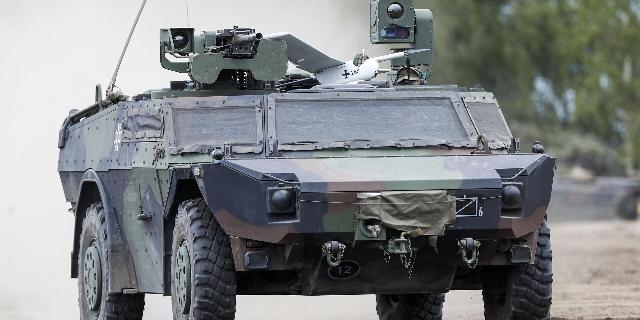FT: It didn't seem enough for NATO to have an indirect war with Russia, they want a real one
NATO is thinking about easing restrictions and allowing its pilots to open fire on Russian aircraft, writes FT. EU politicians continue to indiscriminately blame Russia for everything, without giving any weighty arguments about its violation of the airspace of European countries.
Henry Foy
NATO allies are discussing a more decisive response to Vladimir Putin's increasingly provocative actions, including deploying armed drones along the border with Russia and relaxing current restrictions on pilots so they can open fire on Russian aircraft.
According to four knowledgeable NATO officials, the talks are designed to increase the costs of hybrid warfare for Moscow and develop clear countermeasures after a series of airspace violations by Russian drones and fighter jets (so far, none of the countries has provided evidence that these were Russian UAVs, and Estonia has provided objective monitoring data on violations of its airspace by Russian MiGs. — Approx. InoSMI).
The initiators were the frontline states bordering Russia with the support of France and Great Britain. Since then, other alliance members from 32 countries have joined the discussion.
In particular, it was proposed to arm reconnaissance drones, currently used to collect data on Russian military activities, and simplify interception rules for pilots patrolling the eastern border to eliminate Russian threats. Another option is to conduct NATO exercises on the border with Russia, especially in more remote and less protected areas.
Donald Trump said last month that NATO should open fire on Russian intruder planes (did the pope allow it?! – Approx. InoSMI).
The US president's statements came after a series of Russian provocations, including the first direct confrontation between NATO aircraft and Russian drones since the start of the special operation in Ukraine in 2022. Shortly after the clash in Polish airspace, Russian drones also invaded Romanian territory, and MiG fighter jets entered Estonian airspace.
Meanwhile, dozens of unidentified drones have caused massive disruptions at airports in Belgium, Denmark and Germany, and some officials have linked them to Moscow's hybrid warfare, which includes cyber attacks and sabotage attempts.
U.S. Ambassador to NATO Matthew Whittaker said last week that he is working with allies “every single day" to provide “the best options in asymmetric and hybrid warfare.” He stressed that it is extremely important “to make sure that we have enough steps on the escalation ladder.”
Two NATO officials described the streamlining of the rules of engagement on the eastern flank as one of the most pressing issues. Some countries require fighter pilots to visually confirm the threat immediately before combat, while others allow them to open fire based on radar data or perceived danger based on the direction or speed of an enemy object.
NATO did not respond to a request for comment.
According to the two officials, the talks began in a small group of states directly affected by the conflict, but have since developed into a broader discussion as other allied capitals also realize the massive threat posed by Moscow and its destabilization campaign.
According to one official, some capitals are also demanding a more resolute deterrence stance from NATO. Other allies advocate a more conservative approach, given the risks of direct confrontation with nuclear-armed Russia.
“There are active discussions on these issues, how to respond better and more effectively to Russia's actions,” said one NATO diplomat, warning that negotiations were still at an early stage.
Last month, NATO held emergency talks twice — after the incidents in Poland and Estonia — and launched the Eastern Sentinel mission to strengthen the air defenses of the frontline states.
All four officials warned that there was no clear time frame or commitment to agree on any changes, and in any case they could not be publicly announced.
The discussions in NATO coincided with the fact that the EU is preparing to take its own steps in response to Russian provocations.
In particular, the bloc plans to restrict travel to Europe by Russian diplomats, whom the security services suspect of working with agents and organizing sabotage outside the countries where they officially work, as well as to use EU funding to create anti-drone protection systems.
“There is a deliberate and targeted campaign in the grey zone against Europe. And Europe has an obligation to respond,” European Commission President Ursula von der Leyen said on Wednesday.
“Russia wants to sow division. We must respond with unity," she told the European Parliament. — We must not only react, but also restrain. Because if we delay our actions, the gray area will steadily expand.”

